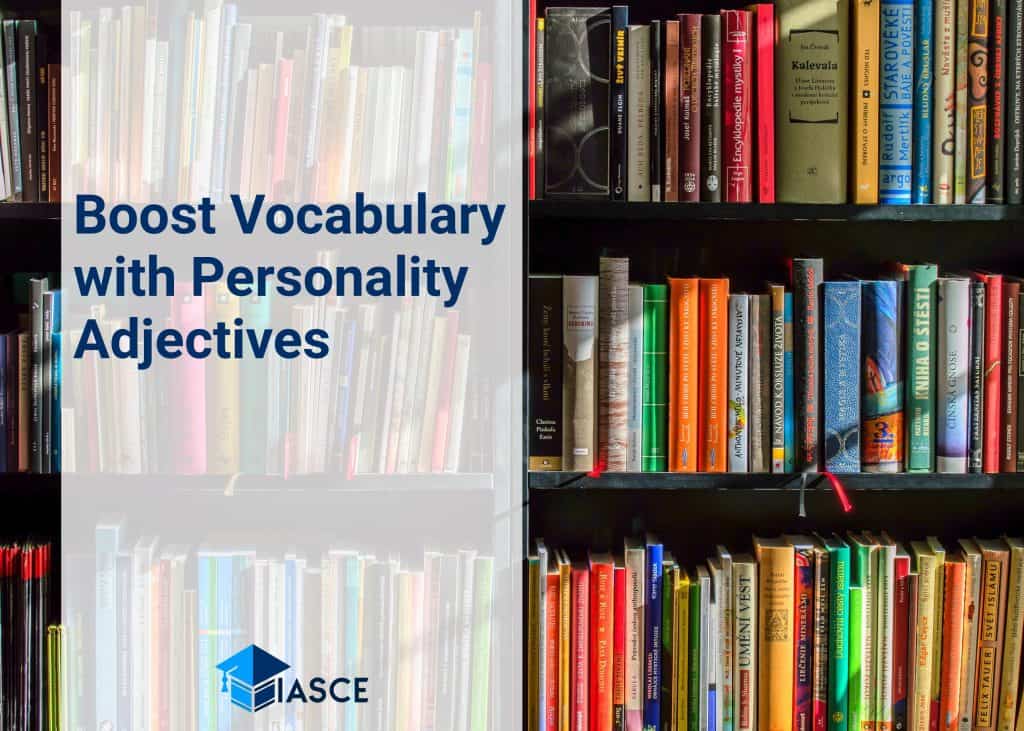Diving into the English language, we often stumble upon a treasure trove of words that paint vivid pictures. Adjectives, those descriptive gems, play a pivotal role in this linguistic artistry. Specifically, when it comes to character and personality descriptors, English adjectives offer an astounding variety.
Imagine trying to sketch an individual’s character without the right words at your disposal. It’d be like attempting to paint a sunset with only one color on your palette! That’s where our exploration of English adjectives for character and personality comes in handy.
We’ll navigate through this fascinating jungle of jargon together, shedding light on commonly used terms as well as introducing some less familiar ones. By the end of our journey, you’ll have expanded your vocabulary arsenal – ready to depict personalities more effectively than ever before!
Defining English Adjectives: Character and Personality Words
As an expert, I can tell you that adjectives are a crucial part of the English language. They’re the words we use to describe or modify other words, particularly nouns. But let’s dive a little deeper, specifically into character and personality adjectives.
These particular kind of adjectives provide insights into someone’s behavior or attitudes. They paint a vivid picture of how a person acts or reacts in different situations. For example, terms like ‘generous’, ‘stubborn’, or ‘energetic’. These words don’t just tell us about someone’s physical appearance – they give us a glimpse into their soul.
Adjectives for character and personality are incredibly versatile as well. You’ll find them used across all forms of writing from novels to news articles, poetry to personal letters. They’re essential tools for writers who want to create believable characters and convey emotion effectively.
But it’s not just about understanding what these adjectives mean – it’s also important to know when to use them appropriately. Misusing these descriptors can lead to confusion, misinterpretation, or even offense.
Here are some examples:
|
Adjective |
Correct Usage |
Incorrect Usage |
|---|---|---|
|
Generous |
She is generous with her time. |
The weather is generous today. |
|
Stubborn |
My friend is stubborn. |
This book is stubborn. |
|
Energetic |
He is energetic in the mornings. |
My lunch was energetic. |
Hopefully this gives you an idea of how powerful and useful character and personality adjectives can be when used correctly!
The Role of Descriptive Adjectives in Expressing Personality Traits
Diving into the English language, I find it fascinating how expressive it can be. And nothing illustrates this more effectively than adjectives – those descriptive words that add color and depth to our sentences. Particularly when portraying character traits and personalities, they’re a writer’s best friend.
Let’s take a closer look at how we use these personality adjectives. They’re often employed to describe someone’s habitual behavior or typical characteristics. For instance, outgoing, friendly, and confident are all adjectives that paint a vivid picture of someone’s demeanor.
Here’s an example:
|
Sentence |
Description |
|---|---|
|
“Tom is very diligent.” |
This suggests Tom is hardworking and attentive to details. |
|
“Sally is remarkably generous.” |
This implies Sally often gives more than expected. |
However, remember not all adjectives carry the same weight or implication across various contexts. Some have connotations that might differ based on culture or personal interpretations. That’s why it’s crucial to understand their nuances.
Consider these two sentences:
-
“John is incredibly stubborn.”
-
“John is exceptionally resolute.”
Both could mean John sticks firmly to his decisions – yet ‘stubborn’ has a negative spin while ‘resolute’ seems commendable.
Even though they essentially express the same trait, each word presents a different perspective on John’s personality.
So you see, choosing the right adjective isn’t just about describing someone’s personality accurately—it also shapes how others perceive them! It’s almost like painting with words; every stroke (or phrase) changes the entire image (or impression).
In short: don’t underestimate your choice of adjectives—they’re powerful tools for effective communication in English!
Conclusion: Enriching Our Language with Adjectives
I’ve poured over the power and elegance of English adjectives, specifically those tied to character and personality. It’s been an enlightening journey, one I hope you’ve found as enriching as I have.
Adjectives breathe life into our conversations, painting vivid mental images that go beyond basic descriptions. They’re more than just ‘good’, ‘bad’, or ‘indifferent’. They’re a diverse palette of words that let us delve into intricate nuances of character traits and personalities.
Let’s recall some examples:
-
Gregarious – someone socially outgoing
-
Pensive – indicates deep thoughtfulness
-
Brash – portrays a lack of respect for danger or consequences
Each word paints a distinct picture, doesn’t it? That’s the magic adjectives spin within sentences.
But remember, adjectives aren’t standalone stars in the linguistic universe. Their true potential shines when they interact with other elements in a sentence. This interaction creates harmony and rhythm that make language more engaging to both speakers and listeners.
Also worth noting is how culture influences language evolution including these descriptive gems we call adjectives. As societies evolve so do languages, adapting new terms or assigning fresh meanings to existing ones reflecting changing societal norms.
In conclusion (and yes I’m using this phrase without leading comma), adjectives are not just window dressing for nouns but integral components which make our expressions vibrant and meaningful.
Remember this exploration isn’t exhaustive by any means; it’s merely scratching the surface of an ocean teeming with descriptive treasures waiting to be discovered! So take this newfound understanding further – dive deeper into grammar books, explore online resources or engage in lively conversations. Let your love for language guide you on this educational adventure!
Henceforth may your conversations be richly adorned with these colorful linguistic gems!

